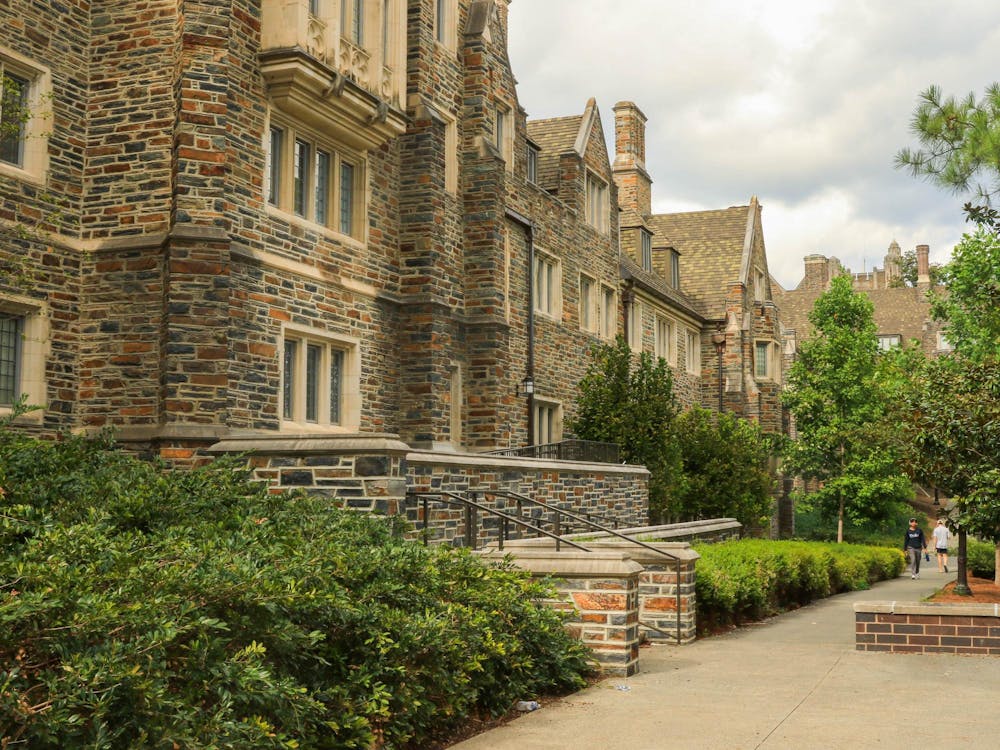President Vincent Price is appointing a working group to address Trinity College's inaugural president Braxton Craven’s ties to slavery, according to a Friday Duke Today announcement.
The working group will be charged with developing a proposal for how to best “publicly acknowledg[e] and contextualiz[e]” Craven’s ties to slavery alongside his position as an important figure in Duke’s history. The proposal is expected to be completed by the end of the 2024-25 academic year.
Craven was elected principal of the Union Institute in 1842 and later became the first president of Trinity College in 1859 — both predecessor institutions of what is now Duke University. However, his history as both a slave owner and public defender of the practice have drawn controversy.
Notably, Craven was also responsible for enrolling 20 students from the eastern band of the Cherokee nation at the “Industrial Indian Boarding School” housed at Trinity College. The school was later named in a federal report charging such boarding schools with pursuing “a policy of cultural assimilation that coincided with Indian territorial dispossession.”
Last year, student representatives from Craven Quad Council submitted a proposal to Price asking that the Craven name be removed from their quad, which he referred to the President’s Advisory Committee on Institutional History for review. Over the summer, the committee recommended to Price that the University keep the Craven Quad name but publicly acknowledge his ties to slavery.
“By retaining the Craven name and initiating a process of publicly acknowledging Braxton Craven’s associations with slavery, my intention is to be responsive to the students’ concerns while also making Craven Quad a place of historical significance and institutional honesty that creates opportunities for deeper learning and exploration of the complicated aspects of our institutional history,” Price said.
The Craven Quad Council did not respond to The Chronicle’s request for comment on the announcement and Price’s decision to not remove Craven’s name from the quad.
Price met with the President’s Council on Black Affairs last week to discuss his decision and invite members’ input on the working group.
Duke has taken steps in the past to address problematic figures in the University’s history.
In 2017, Duke established the Commission on Memory and History following the removal of a statue of Confederate General Robert E. Lee from the entrance of the Duke Chapel. The commission outlined several principles to guide future decisions about facility names, which include keeping the educational mission central, being intentional about not erasing Duke’s history and weighing both past intent and present effect of naming decisions.
Three buildings on East Campus have had their names changed in the last decade due to their original namesakes’ ties to white supremacy.
In 2018, tobacco magnate Julian Carr’s name was removed from what is now the Classroom Building. A similar decision was made in 2014, when former N.C. Gov. Charles Aycock had his name removed from what is now East House, and again in 2020, with the renaming of Jarvis Dorm — commemorating former N.C. Gov. and U.S. Senator Thomas Jarvis — to West House.
The President’s Advisory Committee on Institutional History was established in 2019 to review “current and prospective namings of Duke buildings and public places and their alignment with Duke’s principles,” among other responsibilities.
The committee’s work contributed to the 2020 renaming of the Sociology-Psychology Building to the Reuben-Cooke Building in honor of Wilhelmina Reuben-Cooke, one of Duke’s first Black undergraduate students.
This year, the committee endorsed Price's proposal to rename the East Union Building to the George and George-Frank Wall Center for Student Life in honor of two former custodians — father and son — who together worked at the University for over a century. George Wall was born into slavery in 1854 and was later “bound out” to Craven as a farm laborer. The Board of Trustees later voted unanimously in favor of the proposal.
Editor's note: A previous version of this story mistakenly reported that the President's Advisory Committee on Institutional History endorsed the Board of Trustees' decision to rename the East Union Building, when in actuality they endorsed Price's initial proposal of the renaming.
Get The Chronicle straight to your inbox
Sign up for our weekly newsletter. Cancel at any time.

Zoe Kolenovsky is a Trinity junior and news editor of The Chronicle's 120th volume.

